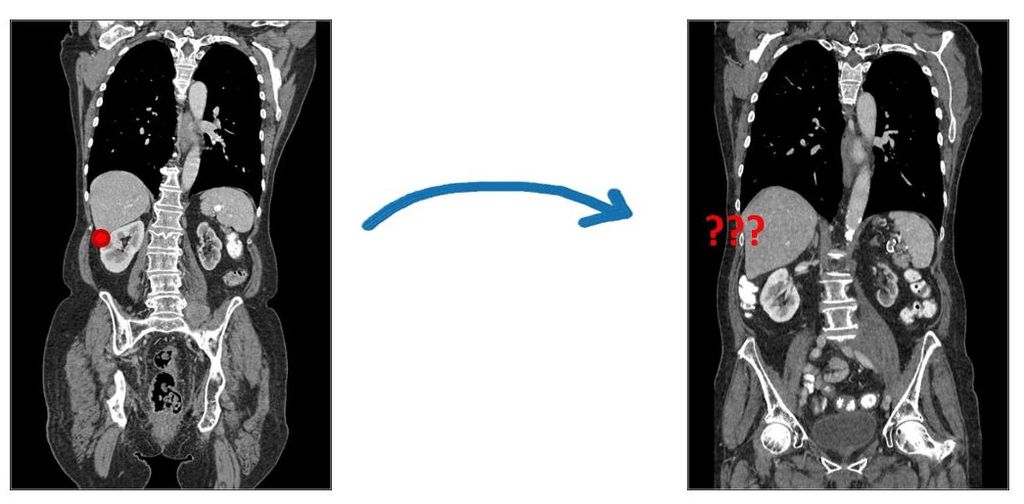
Background
Image registration is the process of aligning two or more images to achieve pointwise spatial correspondence. This step is crucial in medical image analysis as it enables the integration of previously unrelated data, allowing for joint processing of information. By establishing spatial correspondences between multiple images, it aligns anatomical structures and facilitates the automatic quantification of findings in subsequent imaging examinations. This saves radiologists a significant amount of time while ensuring accurate and efficient patient care. Deep-learning-based registration methods emerged as a fast alternative to conventional registration methods in the last years. Despite their advancements, these methods have not yet realized their full potential.
Job description
The aim of this PhD project is to develop a cutting-edge deep-learning-based image registration framework. This framework will be able to seamlessly integrate clinical insights during network training, tailoring its performance to specific medical applications. Your primary focus will be advancing image registration techniques for lesion tracking in cancer patients between images taken at several stages of the treatment. Moreover, your ingenuity and interests will guide the exploration of diverse application areas within the medical imaging landscape.
Tasks and responsibilites
- Conduct research in the development of deep-learning-based image registration methods
- Collaborate with a multidisciplinary team to translate cutting-edge technology into clinical practice
- Co-organize the international Learn2Reg image registration challenge and be active in the research community
- Publish research findings in peer-reviewed journals and present at international conferences
- Mentor junior team members and contribute to the development of the lab's research direction
Profile
You should - be a creative and enthusiastic researcher with an MSc degree in Computer Science, Mathematics, Physics, Engineering or similar - have a clear interest to develop artificial intelligence algorithms and an affinity with healthcare - have good communication skills and enjoy working in a multidisciplinary team - have expertise in software development, preferably in Python - having experience with deep learning, machine learning, and image analysis or time series analysis is a plus.
Terms of employment
You will be appointed for four years as a PhD student with the standard salary (min € 2789 - max € 3536 gross per month) and secondary conditions for PhD students in the Netherlands. The research should result in a PhD thesis.
Organization
You will work in the Diagnostic Image Analysis Group (DIAG). DIAG is part of the Departments of Imaging, Pathology, Radiation Oncology, Cardiology, and Neurology of Radboud University Medical Center. We develop computer algorithms to interpret and process medical images. The group currently consists of around 70 researchers. Radboud University Medical Center and Radboud University are located in Nijmegen, the oldest Dutch city with a rich history and one of the liveliest city centers in the Netherlands. Radboud University has over 17,000 students. Radboud UMC is a leading academic center for medical science, education and health care with over 8,500 staff and 3,000 students.
Information
For more information please contact Alessa Hering by e-mail.
Application
Use the Apply button on this page to apply for this position. You should supply - motivation letter - your CV including links to a Google Scholar profile - list of grades and courses you have followed including online courses on deep learning and similar topics, - links to any publications you have written - Any code you have written and is publicly accessible, e.g., on a GitHub account. This application will remain open until the position has been filled. Applications are processed immediately upon receipt.

